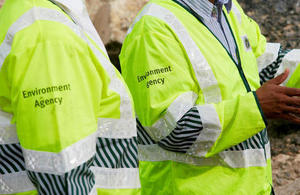- new Business Rates relief fund of £1.5 billion for businesses affected by COVID-19 outside the retail, hospitality, and leisure sectors
- targeted support delivered as appeals against rates bills on basis of material changes of circumstance due to the pandemic to be ruled out
- the relief fund will get cash to affected businesses in the most proportionate and equitable way
Ministers have today set out plans to provide an extra, targeted support package for businesses who have been unable to benefit from the existing £16 billion business rates relief for retail, hospitality and leisure businesses. Retail, hospitality and leisure businesses have not been paying any rates during the pandemic, as part of a 15 month-long relief which runs to the end of June this year.
Many of those ineligible for reliefs have been appealing for discounts on their rates bills, arguing the pandemic represented a ‘material change of circumstance’ (MCC).
The government is making clear today that market-wide economic changes to property values, such as from COVID-19, can only be properly considered at general rates revaluations, and will therefore be legislating to rule out COVID-19 related MCC appeals.
Instead the government will provide a £1.5 billion pot across the country that will be distributed according to which sectors have suffered most economically, rather than on the basis of falls in property values, ensuring the support is provided to businesses in England in the fastest and fairest way possible.
Allowing business rates appeals on the basis of a ‘material change in circumstances’ could have led to significant amounts of taxpayer support going to businesses who have been able to operate normally throughout the pandemic and disproportionately benefitting particular regions like London.
Chancellor of the Exchequer Rishi Sunak said:
Our priority throughout this crisis has been to protect jobs and livelihoods. Providing this extra support will get cash to businesses who need it most, quickly and fairly.
By providing more targeted support than the business rates appeals system, our approach will help protect and support jobs in businesses across the country, providing a further boost as we reopen the economy, emerge from this crisis, and build back better.
Secretary of State at the Ministry for Housing, Communities and Local Government Robert Jenrick said:
Throughout the pandemic we have provided unprecedented support to businesses. Today are going even further with an extra £1.5 billion for councils to provide additional targeted support to those businesses that have not already received rate relief. This is the fastest and fairest way of getting support to businesses who need it the most.
We are also acting to ensure businesses have certainty over their bills and councils have certainty over their funding so they can continue to support their communities and deliver quality local services.
The £1.5 billion pot will be allocated to local authorities based on the stock of properties in the area whose sectors have been affected by COVID-19. Local Authorities will use their knowledge of local businesses and the local economy to make awards.
We’ll work with and support local government to enable ratepayers to apply as soon as possible this year, once the legislation relating to MCC provisions has passed and local authorities have set up local relief schemes. By contrast, individual appeals based on MCCs could have taken years to resolve in some cases.
Around 170,000 businesses have made claims for MCCs. Initial claims were confined to a discrete cohort of properties and handled by the Valuation Office Agency, but claims multiplied as the pandemic and public health measures evolved. Covid restrictions have affected all or nearly all commercial properties in England – well beyond the scope of any previous application of the MCC provision.
A core principle of the business rates system is that economic factors are captured at revaluations, with the MCC system usually applying to issues such as physical changes to the property or surrounding area – for example significant roadworks near a property that affect its value.
Business rates are devolved so the devolved administrations in Scotland, Wales and Northern Ireland will receive an additional £285 million through the Barnett formula as a result of today’s announcement.
-
The £1.5 billion pot will be distributed according to official data on the impacts of the pandemic on different sectors, ensuring an even and more proportionate allocation of support across England based on the economic impacts of COVID-19 and not on estimates of the impact on a property’s value.
-
We’ll work with and support local government to enable ratepayers to apply as soon as possible this year, once the legislation relating to MCC provisions has passed and local authorities have set up local relief schemes.
-
Illustrative Case Study 1 – Consultancy firm operating from an office in Central London:
- prior to the pandemic, operated with staff all office based on a full-time basis.
- since the pandemic, business has been unaffected.
- large office with staff continuing to work on a full-time basis but with 50% working from home at any one time.
- rateable Value – £12.5 million
- size – 36,000m2
- under the MCC regime, the businesses could have could have argued that it had suffered an MCC due to reduced occupancy as a result of social distancing guidance and due to the indirect effect on the value of the property due to the mandated closures of surrounding bars and restaurants.
- for illustrative purposes, a 25% reduction in rateable value would save the business £1.6 million
- under our proposed approach, the business would unlikely fall within scope, given it had not suffered an economic impact.
-
Illustrative Case Study 2 – Food wholesaler operating from a warehouse outside of London:
- prior to the pandemic sold exclusive to restaurants within a region
- since the pandemic, turnover reduced nearly to nil
- large warehouse where social distancing can be observed without an impact on operations.
- rateable Value – £95,000
- size – 5,200m2
- under the MCC regime, the businesses would unlikely have been deemed to have suffered an MCC and so would have received no reduction
- under our proposed approach the business would likely fall within scope given the economic impact on their business
- for illustrative purposes, a 15% relief would save the business £7,300
-
Cases seeking reductions in rates bills often result in little or no change to property values. Around 1 million appeals were made (on 2 million properties) over the life of the 2010 business rates list – 70% resulted in no change in values.
-
Comparable statistics on the current 2017 list are not available as the list remains open. However, current figures show that less than 25% of all Checks (first part of the new Check, Challenge and Appeals system) have progressed to Challenge.
-
The devolved administrations will receive an additional £285 million through the Barnett formula. This comprises £145 million of the Scottish Government, £90 million for the Welsh Government, and £50 million for the Northern Ireland Executive.
-
We will be laying a Statutory Instrument today to make these changes prospectively, which will come into force as soon as it is laid. We will also be introducing primary legislation with retrospective effect, when parliamentary time allows, to ensure that the government’s response to the coronavirus is not considered relevant for MCC purposes from the start of the pandemic.
-
The government has provided a £350 billion package of support through the Covid pandemic to support businesses and individuals, including £16 billion of business rates relief for retail, hospitality and leisure businesses.
- On business rates, the government announced 100% relief to all eligible retail, hospitality and leisure properties given the acute and direct impact of NPIs on these sectors. This was worth over £10 billion for the 2020-21 and, alongside other BR reliefs, ensured that over 1 million properties paid no business rates last year. The Budget announced a 3-month RHL extension and 9-month taper worth £6bn.

